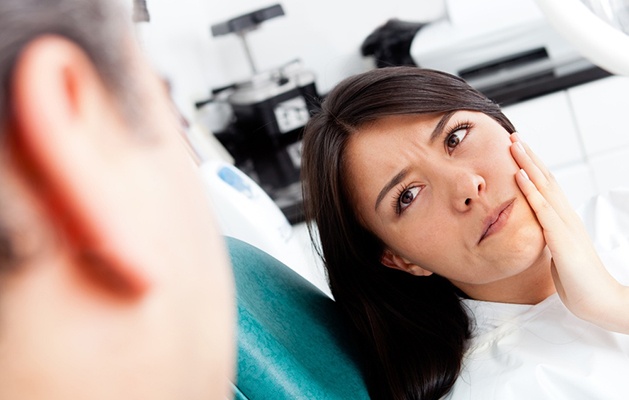
There’s no arguing the fact that excellent home care habits are key to maintaining great oral health throughout your life. Brushing and flossing your teeth, rinsing regularly with antibacterial mouthwash, and taking care not to expose your teeth to too much sugary or otherwise damaging substances are all vital, and shouldn’t be taken for granted.
But is that all that’s needed to maintain a healthy smile and make sure your teeth last as long as you do?
No. Ultimately do-it-yourself dental care is not enough.
What good daily self-care habits accomplish
When you brush your teeth properly, using a soft-bristled brush and quality toothpaste, you loosen the majority of the thin, sticky coating of bacteria, food particles, and acid that naturally accumulates on the surfaces of your teeth throughout the day.
Flossing properly does the same thing for the surfaces of your teeth your brush can’t reach, especially directly between the teeth. And rinsing with a quality mouthwash adds another layer of protection for times and circumstances when thorough brushing and flossing may not be practical.
This coating is known as plaque, and if it’s allowed to remain on your teeth for too long, it will harden into a cement-like substance called tartar, which is much harder to remove. Additionally, since plaque contains bacteria and the food bacteria eats, the secretions these microorganisms leave behind are there in the plaque as well. Since those secretions are acidic, leaving plaque on your teeth is one of the leading causes of dental cavities.
So, it’s obvious why regularly brushing, flossing, and rinsing is such an important part of your oral health. If you don’t maintain these simple habits, you can expect plaque (and eventually, tartar) to build up and stay there doing damage to your teeth indefinitely.
Why DIY dental care is not enough
"If your goal is to vigilantly avoid dental problems and keep your teeth and gums as healthy as can be, you’ll need to include the help of dental professionals as well."
If it was the only option available to you, taking care of your teeth as described above is definitely far better than doing nothing. But if your goal is to vigilantly avoid dental problems and keep your teeth and gums as healthy as can be, you’ll need to include the help of dental professionals as well.
When a dental hygienist performs a cleaning, he or she has the tools, perspective, knowledge, and time to remove every bit of plaque and tartar from your teeth — a task no amount of brushing or flossing at home will be able to duplicate. Not only is it difficult to guarantee you’re always thoroughly cleaning every possible surface when you brush and floss, but there are likely spots in your mouth that you’ll never be able to adequately reach on your own.
While plaque can be effectively removed with a thorough brushing and flossing habit, once tartar forms, you could brush as much as possible, and it likely won’t budge at all. That’s where the hygienist’s specialized tools come in.
Additionally, both the hygienist and the dentist are trained to perform a thorough visual inspection of your mouth as well as interpret any x-rays that are taken of your teeth and jaws. This allows them to effectively diagnose potential health problems, recommend the best treatments possible, and oversee treatment, all of which promotes excellent long-term oral health. What’s most interesting about this aspect of professional care is the fact that most of these diagnoses and treatments can occur before you begin suffering any acute symptoms. In that case, allowing a dental professional to perform a cleaning and examination can prevent not only pain, but also the finances necessary for extensive dental care in the long run.
While establishing and maintaining an excellent DIY oral health habit is vitally important, you should never underestimate the value of obtaining professional dental care as well. If cost is standing in the way of scheduling an appointment, consider using a dental discount program to help mitigate expense. Or are you an employee without dental insurance? Find out how you can still afford dental care in our employee dental savings guide. Don’t procrastinate! Instead, be sure you’re seeing a dentist at least once every six months to augment your daily oral health care home habits.

